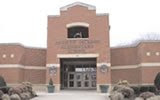
I think action research is a great tool for teachers to use to gain useful information about how students learn. Knowing how students learn is as important as knowing what is needed to be learned. As I worked through the action research project, I was reminded of formative assessment. As teachers, we should always know what our students know in order to help them continue progressing. Formative assessment is one way of getting that information, so is action research. If I, as a teacher, am actively researching the best methods and strategies to help my students learn, then I am doing my job. By using my students as the research subjects, I am essentially using ongoing assessments that give me valuable information about what to teach and the best strategies to use with my students.
 Ideas generated
Ideas generated My action research project was based on the idea of pre-teaching vocabulary in order to help my Kindergarten ELL students use that vocabulary in phonemic awareness activities, such as rhyming and beginning sounds, as well as in reading comprehension.
I found that my students were able to be successful with phonemic awareness games and activities if they were taught the English vocabulary words first, and had some practice using the chosen words.
Think about it this way: If you are a Spanish speaking Kindergarten student, and you see pictures of a moon and a spoon, you think cuchara and luna. In Spanish, these words do not rhyme. In English, they do. For ELL students to master this skill, they first have to learn the English words, and then learn the skill of rhyming. By using the English vocabulary words in a pre-teaching game or activity, I am giving my students prior knowledge to use when they encounter this vocabulary in other areas.
Suggestions for ESL professionals 
As a result of this action research project, I learned these things:
Before beginning a new phonemic awareness skill, pre-teach as much of the vocabulary that you are going to use as possible
Use manipulatives or real objects for teaching vocabulary if possible
When introducing a new book for guided reading, take time to talk about the pictures, and introduce new vocabulary
Use games to help teach vocabulary such as Quiz, Quiz, Trade, What’s Missing?, or I Have, Who Has?
Here is a great website I found with an online game that teaches vocabulary with pictures and sound: http://www.vocabulary.co.il/foreign-language/english-word-recognition-game/

No comments:
Post a Comment